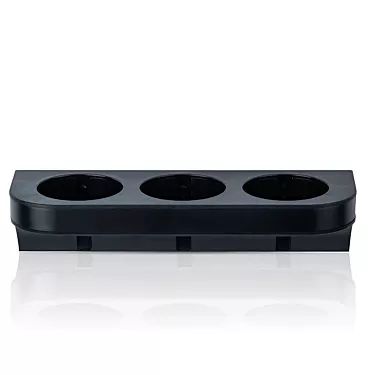Running a hotel means balancing dozens of competing priorities every day. Procurement often gets treated as a back-office function, something to handle when there’s time. But the reality is different. The way properties source linens, amenities, and supplies directly impacts both guest satisfaction and profit margins. Smart procurement isn’t about finding the cheapest option. It’s about building systems that deliver consistent quality at predictable costs.
Understanding Procurement Challenges in Hospitality
- Budget Pressures and Quality Standards: Hotels across Canada struggle with the same basic tension. Guests expect high standards, but operating costs keep climbing. A hotel supplier Canada relationship built on price alone rarely works in the long-term. Properties that chase the lowest quote often end up replacing towels more frequently or dealing with guest complaints about scratchy linens. The true cost shows up months later in replacement orders and negative reviews.
- Supply Chain Disruptions Create Risk: Recent years taught the hospitality sector hard lessons about supply reliability. Properties that worked with multiple small vendors found themselves scrambling when shortages hit. A hotel amenities supplier Canada partnership matters most when something goes wrong. Can they fulfil rush orders? Do they stock backup inventory? These questions separate reliable partners from fair-weather suppliers who disappear during tight markets.
The Business Case for Supplier Consolidation
- Bulk Purchasing Power Reduces Unit Costs: Working with fewer suppliers unlocks volume discounts that scattered purchasing never achieves. A 200-room property might order towels from one vendor, sheets from another, and bathrobes from a third. Each vendor sees modest order sizes. Consolidating those purchases with one or two partners transforms the property into a major account. Suppliers offer better pricing to customers who represent significant revenue. The maths works in the hotel’s favour.
- Administrative Efficiency Saves Hidden Costs: Multiple vendors mean multiple invoices, multiple delivery schedules, and multiple points of contact for quality issues. Staff spend hours managing relationships and reconciling orders. Consolidation cuts this administrative burden dramatically. One purchase order replaces three. One delivery day replaces scattered arrivals throughout the week. The time savings let procurement teams focus on strategic planning rather than paperwork shuffling.
Key Benefits of Consolidation:
- Simplified inventory management with fewer SKUs to track
- Reduced storage space requirements for standardised products
- Faster problem resolution through established communication channels
- Better forecasting accuracy with consistent supplier performance data
Building Long-Term Supplier Partnerships
- Contract Negotiation Creates Stability: Annual contracts with clear terms protect both parties. Hotels gain price certainty for budgeting purposes. Suppliers secure predictable revenue streams. The negotiation process itself reveals which vendors think strategically. Some suppliers focus entirely on unit price. Others discuss seasonal demand patterns, suggest inventory optimisation strategies, or propose payment terms that improve the property’s cash flow. These conversations identify partners who understand hospitality operations.
- Quality Specifications Prevent Disputes: Vague agreements lead to disappointment. A contract should specify thread counts, fabric weights, and acceptable colour variation ranges. When a shipment arrives, staff can measure it against documented standards. This protects the hotel from substandard goods and protects the supplier from unreasonable complaints. Both sides know exactly what “acceptable quality” means before any money changes hands.
Supply Chain Reliability Drives Guest Satisfaction
- Consistent Product Availability Matters: Imagine running out of bath towels during a sold-out weekend. No amount of cost savings justifies that scenario. Reliable suppliers maintain adequate stock levels and communicate proactively about potential shortages. They understand that hospitality operates on tight timelines. A delayed linen delivery doesn’t just inconvenience the housekeeping department. It potentially impacts guest rooms and revenue.
- Responsive Service Reduces Operational Stress: Problems happen. A shipment arrives damaged, or an order contains the wrong items. The supplier’s response determines whether this becomes a minor inconvenience or a major crisis. Properties need partners who answer phones, process returns efficiently, and expedite replacement shipments without endless paperwork. This responsiveness has real value that extends beyond the invoice price.
Procurement strategy directly impacts hotel profitability and operational smoothness. Properties that consolidate suppliers, negotiate thoughtful contracts, and prioritise supply chain reliability position themselves for sustainable success. The goal isn’t just lower costs. It’s predictable expenses, consistent quality, and fewer daily headaches for staff. Start by reviewing your current supplier relationships. Identify opportunities for consolidation. Then approach potential partners with clear specifications and expectations. The right procurement approach transforms a cost centre into a competitive advantage.
Featured Image Source: https://cdn.linenplus.ca/media/catalog/product/cache/358c30a06a65af0a841606e68ba7d9ae/w/a/wa_mgntx_triplebracket_front_1800x1800.webp
